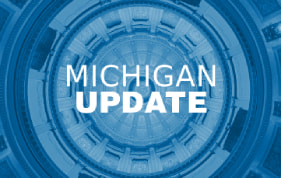
1030 Results found.


HMA analysis of Medicare Advantage Star rating challenges
This week, our In Focus section highlights changes that may affect the Centers for Medicare & Medicaid Services (CMS) Medicare Advantage Star Rating program and how these changes impact future summary Part C & D Star Rating scores. As the CMS Medicare Advantage Star Rating program continues evolving from year to year, many plans have yet to achieve at least four star status, and therefore are missing out on additional Medicare revenues. The Star Rating landscape is expected to change drastically over the next two years for plans due to CMS’ continued focus on phasing-in greater reliance on outcomes measures and measures of care experience, rather than process measures. As a result, many plans are at risk of losing their four star overall rating and underperforming plans could be at risk of receiving a low performance indicator.

CMS Interoperability and Patient Access Final Rule – Part 3
This blog was written by Juan Montanez, Principal, HMA, and Robert Chouinard, VP Public Sector, HealthEC
Where are you going to invest to maximize benefits?
In thinking about the value that can be derived from implementation of the Interoperability Rule, both payers and providers need to ensure their perspective of the rule positions them for long-term success.

CMS Interoperability and Patient Access Final Rule – Part 2
This blog was written by Laura Zaremba, Principal, HMA, and Robert Chouinard, VP Public Sector, HealthEC
Making the Economics Work for You
Most health care organizations impacted by the Interoperability Rule have very logically focused their attention and resources on interpreting what the new rule requires them to do within their own systems, in what timeframe, and at what cost. And to be sure, scoping the work and deploying the resources required to meet the compliance deadlines is a significant investment of time and money, but the compliance focus should be only the first action step for to the Interoperability Rule.

Nevada Releases Medicaid Managed Care RFP
This week, our In Focus section reviews the Nevada Medicaid and Child Health Insurance Program (CHIP) managed care request for proposals (RFP) released by the Nevada Department of Health and Human Services, Division of Health Care Financing and Policy (DHCFP) on March 17, 2021. The RFP is for the current service area covering two urban counties of the state, Clark and Washoe; however, the state may extend the geographic service area under the contract. Through this RFP, Nevada seeks to advance the state’s goals of “improved clarity and oversight of requirements; increased focus on care management, member engagement, and access; and continued progress towards integration of services and efficiency.”

Youth needs assessment published
With a focus on the needs of young people in detention and correctional facilities, a team of Health Management Associates (HMA) colleagues completed an in-depth assessment designed to guide future planning and decision making around mental health services for youth.

Nursing home report highlights benefits of single resident rooms
The COVID-19 pandemic highlighted nursing home safety and infection control as critical public health issues. A new report authored by HMA colleagues found compelling evidence that single rooms in nursing homes have numerous benefits for both public health and residents’ experience. The authors conclude that transitioning from multi-resident rooms to single rooms should be a component of person-centered nursing home reform. The report calls on stakeholders to come to the table to discuss options and strategies for long-term care redesign and transformation.
The report, Fundamental Nursing Home Reform: Evidence on Single-Resident Rooms to Improve Personal Experience and Public Health, was developed for a Michigan-based long-term care provider and owner of skilled nursing facilities.
HMA colleagues Sharon Silow-Carroll, MBA, MSW, Deborah Peartree, RN, MS, Susan Tucker, CPA, and Anh Pham conducted the research and analysis and prepared this report. An appendix prepared by the national accounting firm Plante Moran provides estimates of new costs and other considerations related to transitioning to single-resident rooms, based on data from two Michigan-based multi-facility long-term care organizations.

New HMA report advocates for single rooms in nursing homes as essential for public health and resident experience
The COVID-19 pandemic highlighted nursing home safety and infection control as critical public health issues. A new report authored by HMA colleagues found compelling evidence that single rooms in nursing homes have numerous benefits for both public health and residents’ experience. The authors conclude that transitioning from multi-resident rooms to single rooms should be a component of person-centered nursing home reform. The report calls on stakeholders to come to the table to discuss options and strategies for long-term care redesign and transformation.

Webinar Replay: Continuous Quality – How Medicaid and Medicare Plans Can Stay Ahead of Evolving HEDIS, CAHPS, and Accreditation Requirements
This webinar was held on April 6, 2021.
Medicaid and Medicare Advantage plans can avoid the disruptive triannual accreditation fire drill by instituting a process-driven approach to continuous quality improvement, driving member satisfaction, improving health outcomes, and ensuring a smooth accreditation process. During this webinar, HMA experts provided strategies and best practices for maintaining ongoing quality processes. Speakers also provided an understanding of the growing role that HEDIS and CAHPS measures play in member assignment, plan ratings, and pay-for-performance programs.
Learning Objectives:
- Identify key trends in health plan accreditation and how to position your organization for success.
- Understand the growing importance of HEDIS and CAHPS measures in ensuring member health and long-term plan success.
- Learn about upcoming changes in key quality metrics along with best practices and processes for hitting new member outcome and satisfaction targets.
- Find out how to establish an ongoing process for quality reporting and evaluation, ensuring optimal accreditation results.
HMA Speakers
Diana Criss, Principal, Lansing, MI
Margaret Williams, Principal, Los Angeles, CA
David Wedemeyer, Principal, Los Angeles, CA

